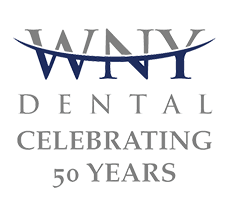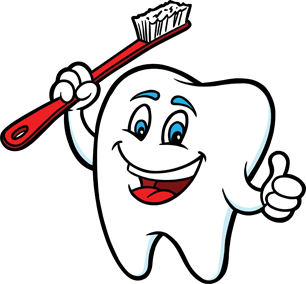Dental Hygiene Tips
The following information can help you and your family take good care of your teeth.
How to Brush Your Teeth
- Choose a good toothbrush. A soft brush with a small head is the best choice. This type of brush is hard enough to remove plaque and soft enough not to damage your teeth or gums.
- Choose a toothpaste. In general, any toothpaste that contains fluoride will do the job, unless you have a special need identified by your dentist.
- Brush from one side to another. Begin brushing in a specific location and work your way to the opposite side and all the way through the whole mouth, so that you end where you started. This way you won’t miss any area.
- Take your time. A good brushing should take at least 2 minutes and ideally around 4 minutes.
- Brush after each meal or twice a day. If you can’t brush after each meal, brush at least twice a day, after breakfast and before going to bed.
How to Floss Your Teeth
- Flossing is critical to clean surfaces between the teeth that a toothbrush can’t reach.
- Ideally, floss after each meal. At a minimum, you should floss at least once a day, before going to bed.
- Start with a good-size piece of floss. Cut off a piece of dental floss, about 2 feet in length. Wrap both sides of the floss around your middle fingers.
- Move the floss between the teeth one-by-one. Using your index and thumb move the floss in between all your teeth one by one. Make sure you are not pressing into the gum.
- Hug the sides of each tooth with the floss. In each space between the teeth, press the floss against the side of each tooth (hug the tooth).
- Move the floss back and forth, up and down. Then move to the opposite surface of the adjacent tooth.
Electric Brushes vs. Manual Brushes
Multiple studies have compared the effectiveness of manual versus electric brushes. While not all electric brushes are the same, studies show that electric brushes in general are more effective at controlling plaque than manual brushes.
The movements of an electric brush can make tooth brushing easier and more efficient. Some electric brushes (Sonicare) have sonic vibration that isn’t possible with a regular toothbrush. Other electric brushes such as Oral-B and Rotadent have small heads to clean hard-to-reach areas of your mouth.
Bad Breath
Bad breath can have different sources – from stomach conditions to diet to teeth problems. Most of the causes start in the mouth. They can include:
- Bacteria on the tongue (when bacteria grow in between the small bumps on the tongue known as papillae)
- Tooth cavities (especially when food particles are stuck in them)
- Gum diseases
- Extraction sites during healing
- Dentures when not cleaned properly
- Alcohol and tobacco
If you or someone you know is concerned about bad breath, the first step is a dental check-up.
Your dentist will be able to confirm or rule out teeth or mouth as the source of bad breath. Once the cause is identified, your dentist will discuss treatment.
If the source is in your mouth, mouthwashes or mints most likely won’t be effective in the long-term. While these remedies can mask bad breath temporarily, they may also worsen the problem since many mouthwashes contain alcohol.
Practicing good oral hygiene and having regular check-ups with the dentist are the best ways to prevent bad breath.
Dental Health and Your Diet
When we talk about dental decay, sugar is a major culprit.
More important than the amount of sugar you eat is how often you eat it. Eating or drinking something sweet during a long period of time – such as holding a soda and taking a sip every few minutes — creates a constant supply of sugar for the bacteria that cause tooth decay. If you want to have a snack or a soda or juice, it’s better to have it after food, as dessert, or have it in one sitting.
It’s also important to remember that sugar comes from many sources – not just from sweets but from food that can turn into sugar, like bread. Cutting down your sugar intake is important not just for cavity prevention, but for general health.
When you do have sugar, the best way to avoid cavities is to prevent the sugar from staying next to your teeth. Brushing after eating sugar, rinsing your mouth with fluoride mouthwash or chewing sugarless gum can help.
Fluoride and Decay Prevention
Many years ago, scientists started noticing that children born and raised in areas with fluoride in their drinking water had fewer cavities than children in other areas.
Fluoride that is absorbed by your body when teeth are forming (during the mother’s pregnancy to early childhood) integrates into the structure of enamel and makes it stronger. Fluoride in toothpaste and mouthwash helps to strengthen the enamel of your teeth and reduce the chance of tooth decay.
If you have children and live in an area that doesn’t have fluoride in the drinking water, you should consult your dentist or physician about fluoride tablets available for children.
Periodontal (Gum) Disease
Periodontal disease or gum disease is a common, and sometimes silent, condition in many adults. It requires a much more meticulous and time consuming cleaning.
Periodontal disease is an inflammation and/or infection of the gums and bone which support the teeth, resulting from bacterial plaque and its toxic by-products. This can overwhelm the mouth’s defenses, resulting in unhealthy gum tissue and abnormal pockets around the roots.
Left untreated, periodontal disease can result in tooth loss, and put you at higher risk for other health conditions.































